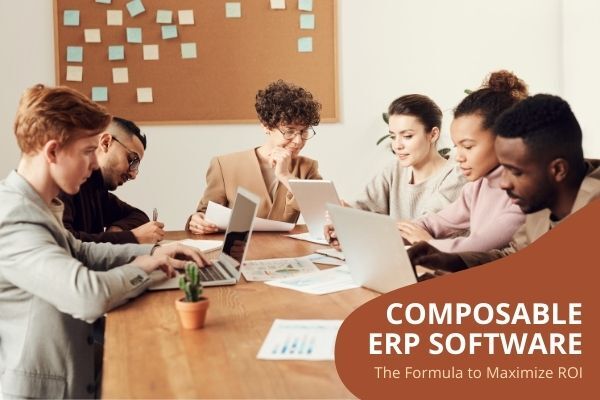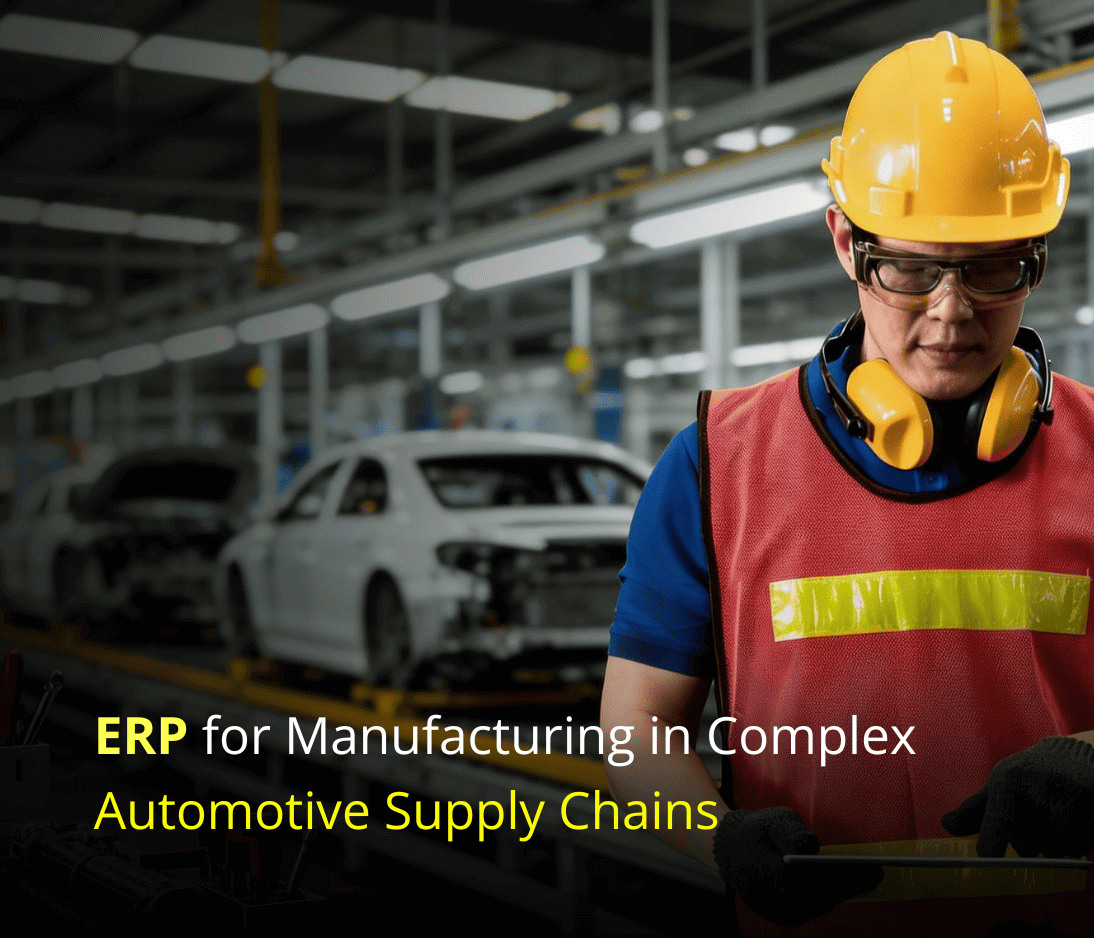Why is the Transition from Monolithic to Composable ERP Important?
Monolithic ERP software is often criticized for its rigidity, inability to evolve, heavy interface, and high costs. Customizing the all-inclusive system costs huge amount of time and money. It also disturbs the overall competitiveness of the organization in which it is implemented.
On the contrary, composable ERP is a highly configurable, AI-embedded, cloud-based business suite that offers discrete features and robust flexibility to evolve and support dynamic business demands.
The perceived demise of monolithic ERP is related to its inadequate flexibility of deployment and usability of the platform to support today’s modern digital business. Beyond software agility, the other reasons for adopting this more responsive and composable ERP strategy are:

Industry-specific capabilities
Industry-specific ERP software includes the same essential tools that a generic system has for managing business accounting, sales, and human resources. But it goes further, offering capabilities that align with your industry’s unique needs.
This type of platform wraps all essential tools into one system and barely requires extensive customization or expensive add-ons to handle your core business function. Composable ERP lowers the cost of ownership, speeds up implementation, offers industry best practices, and enables faster issue resolution.
Extended integration capabilities
Extended ERP includes integration with multiple data and 3rd-party applications. This is usually required to eliminate the need for maintaining separate systems and challenges with redundant information.
Business software that supports integration reduces ongoing maintenance costs. It plays the primary role in disseminating information across functions for a deeper understanding of every aspect of your business, accelerating forecasting, planning, and decision-making.
Easy software configuration
ERP configuration is the necessary extension or modification to make the software support the particular purpose.
Unlike a traditional system, a composable solution does not require custom coding or any form of special ERP implementation. Configuring it needs simple efforts. It allows users to use built-in, native tools in the system to change its behaviour or features for meeting the requirements.
Assessing our organization’s readiness for ERP transition? What architecture is needed to adopt composable ERP strategies?
With technology evolving at a fast pace these days, enterprise ERP solutions are also changing their capabilities. Gartner describes this future-ready application as Fourth Era ERP. These systems are built from composable business capabilities and enable new business scenarios.
Implementing a composable ERP application would require a stable foundation that permits rapid adoption of emerging technologies and supports ever-changing capabilities to meet consumer demands. It needs a flexible platform that enables new applications to seamlessly integrate and let users access all data from within the enterprise system.
Most of the organizations are already making a shift from traditional on-premises-only applications to cloud-based and hybrid systems. A cloud-based business solution provides unique advantages - quicker new feature deployment and faster break fixes. As a result, it is efficient to support the ERP transition from monolithic to composable structure and role change.
Moving ERP software to the cloud also means no more stress of managing infrastructure, cost savings because you do not have to buy or maintain the hardware, and you would be always using the latest version as it the vendor’s responsibility to keep it up to date.
Nowadays, a cloud-based ERP model is not just adopted to fulfill the needs of agile and cost-driven businesses. It is necessary for organizations planning to survive future volatile economic conditions, attract or retain talents, and compete in a global market.
Benefits a Composable ERP Brings to a Business
Composable ERP supports an organization’s operational, administrative, and foundational capabilities while offering scalability when needed. By investing in a composable ERP, you are able to get a highly configurable business application that allows a quick adaptation to modern technologies to fulfill all critical business functions and future demands. The benefits of deploying composable ERP are:
Enabling strategic business driven outcome
When you have ERP software with right functionality, it allows you to take a deeper look into your company's operations and identify areas for improvements. With its multiple data entry points and forecasting tools, the system empowers you to make business decisions based on insights and not instincts. It helps you determine and address your mission-critical objectives to deliver strategic business outcomes.
Facilitating data unification and analytics strategy
When your ERP software comes embedded with artificial intelligence and machine learning, it automates transaction processing to help you reduce disputes, improve workflow, and gain real-time visibility into all business data. The system imports data from multiple sources, stores it on a unified database, and use its technologically advanced predictive analytics tool to forecast demands and influence business strategy.
Accelerating business value
Effective ERP software streamlines tedious back-office tasks, creating more accurate and efficient business operations. It helps employees gain real-time visibility into your company’s processes, enabling them to become productive and successful in accomplishing their roles. When your people are efficiently performing, it automatically improves your business productivity and profits.
Get a Composable ERP System
The net effect of switching to composable ERP is that it would create more value with fewer resources. It would begin with eliminating unnecessary business processes and minimizing errors, ultimately contributing to improving the overall return on investment.
We are one of the trusted ERP vendors in UAE, offering composable solutions to help businesses stay equipped to withstand present and future demands.








